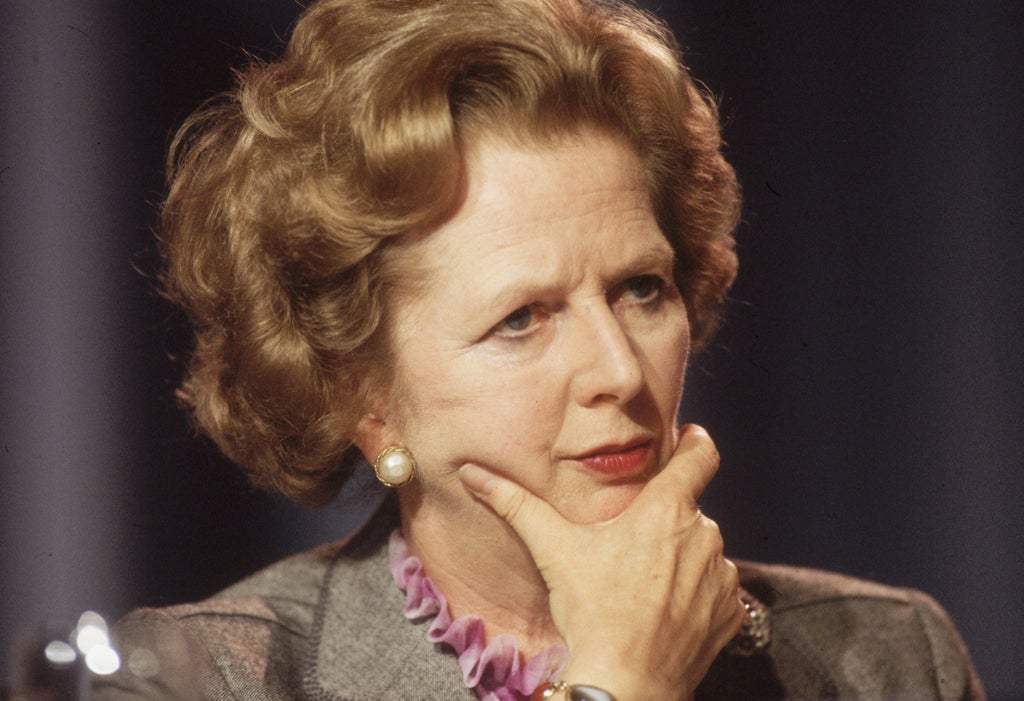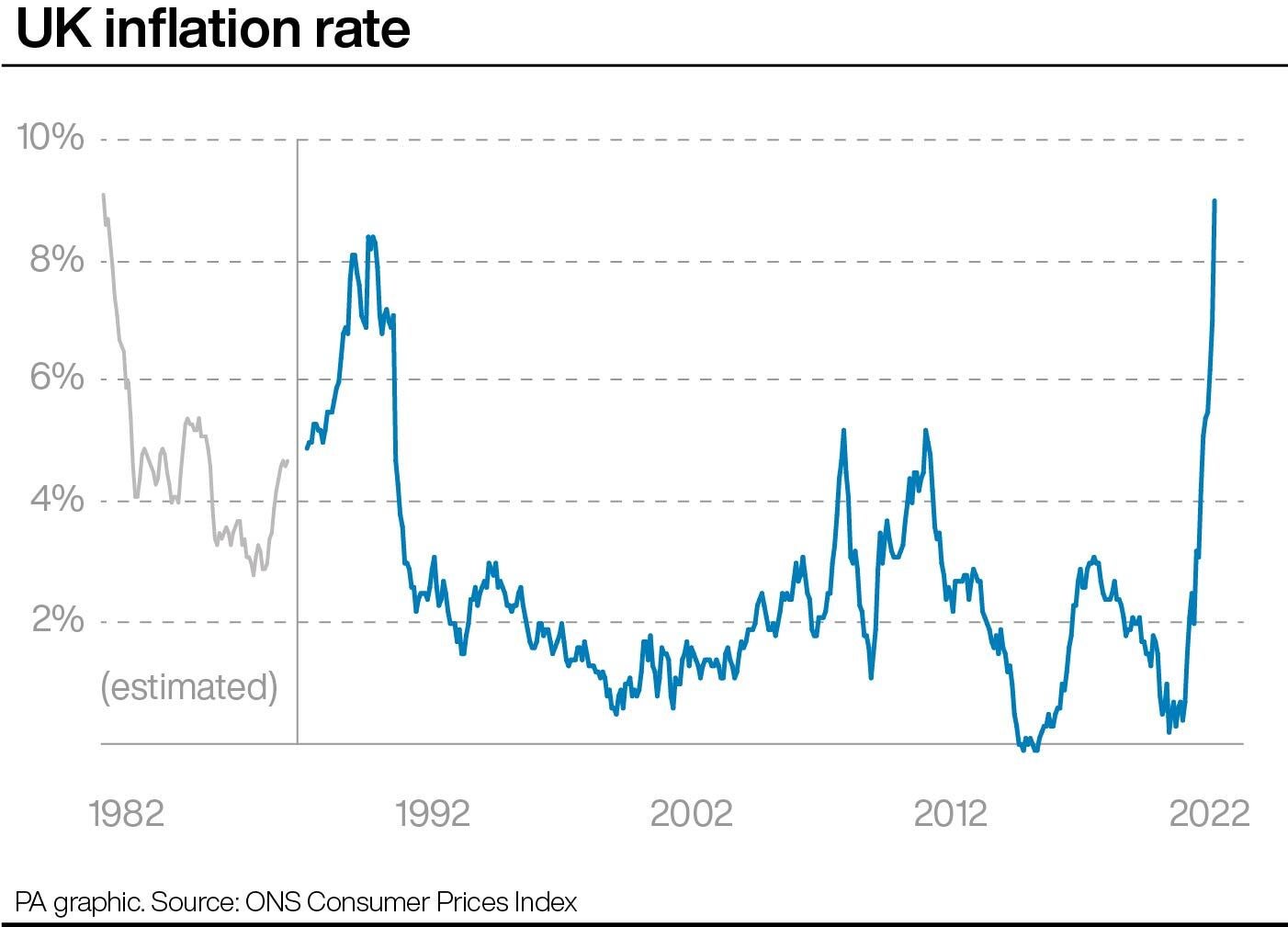
Inflation in the UK has soared to 9 per cent in the 12 months to April, having stood at 7 per cent in March, marking its fastest surge in 40 years as the cost of living crisis bites.
Soaring energy bills coupled with higher fuel and food costs exacerbated by Russia’s war in Ukraine are behind the steep climb, according to the Office for National Statistics (ONS).
Andrew Bailey, governor of the Bank of England (BoE), said he and his fellow interest rate setters at the institution felt “helpless” in the face of price growth generated overseas and imported into the UK.
Dame Claire Moriatry of Citizens Advice meanwhile paints a bleak picture of “people washing in their kitchen sinks because they can’t afford a hot shower; parents skipping meals to feed their kids; disabled people who can’t afford to use vital equipment”.
The development will inevitably place renewed pressure on chancellor Rishi Sunak to announce further help for British households, although he has so far insisted that price rises are a global concern from which the Treasury cannot entirely shield British consumers.
Mr Sunak insisted the government is “providing significant support where we can” and stands “ready to take further action” but Labour’s shadow chancellor Rachel Reeves has insisted that overstretched families cannot wait, criticising Boris Johnson’s administration for opposing a one-off windfall tax on energy companies to relieve the pressure on the public.
The growing crisis is reportedly already prompting citizens to tighten their belts, spend less and take fewer car journeys due to the rising cost of petrol, a blow to the UK’s economic recovery from the toll taken by two years of Covid-19 lockdowns.
According to the ONS, estimated inflation is now at its highest level since March 1982, when it stood at 9.1 per cent, but the BoE has already warned that it could ultimately surpass 10 per cent this year when Ofgem’s energy price cap rises again in October, as it is widely expected to do.
Cost of living: How to get help
The cost of living crisis has touched every corner of the UK, pushing families to the brink with rising food and fuel prices.
- The Independent has asked experts to explain small ways you can stretch your money, including managing debt and obtaining items for free.
- If you need to access a food bank, find your local council’s website using gov.uk and then use the local authority’s site to locate your nearest centre. The Trussell Trust, which runs many food banks, has a similar tool.
- Citizens Advice provides free help to people in need. The organisation can help you find grants or benefits, or advise on rent, debt and budgeting.
- If you are experiencing feelings of distress and isolation, or are struggling to cope, The Samaritans offers support; you can speak to someone for free over the phone, in confidence, on 116 123 (UK and ROI), email jo@samaritans.org, or visit the Samaritans website to find details of your nearest branch.
The Britain of 40 years ago was, of course, the age of Margaret Thatcher, appropriate given that Wednesday’s dire economic forecast should follow immediately on the footsteps of her statue being unveiled in her native Grantham, Lincolnshire, and almost immediately pelted with eggs.
According to research by Lloyds TSB Private Banking, a pint of beer cost 73p in 1982, a loaf of white sliced bread was yours for 37p and a pint of milk was just 20p while the average price for a detached house was a mere £45,211. A different world.
Unemployment meanwhile hit 3 million for the first time since the 1930s, meaning one person in eight was out of work, the second-highest in Europe with only Belgium in a worse position.
When Thatcher attempted to defend the dire state of the economy in the House of Commons, insisting she saw “encouraging signs”, she was viciously heckled and told by Labour leader Michael Foot that there were “32 people chasing every vacancy”.
Unlike today, politics in Westminster was a genuine three-way fight for supremacy in 1982, with the Conservatives and Labour battling against the Alliance, a recently-formed pact between the Liberal and Social Democratic Party, for dominance.

This was also the era of shops staying closed on Sundays by law and taking a half-day on Wednesdays and the UK’s telecoms, gas, electricity, coal and water sectors all held in public hands, alongside the Royal Mail, British Rail, British Airways, British Steel, British Petroleum, Rolls-Royce and British Leyland.
More dramatically, 1982 was also the year of the Falklands War, a brutal Provisional IRA bombing campaign, Ozzy Osbourne biting the head off a dead bat live on stage, the raising of The Mary Rose from the Solent after more than four centuries beneath the waves, the creation of Channel 4 and the births of Prince William, the future Duchess of Cambridge, Eddie Redmayne, Jodie Whittacker, Jermaine Defoe and the legendary Ade Akinfenwa.
Steven Spielberg’s ET and Ridley Scott’s Blade Runner packed cinemas that summer, Michael Jackson released his decade-defining album Thriller in November, “Come on Eileen” by Dexy’s Midnight Runners was the best-selling single of the year and ITV’s This is Your Life and Coronation Street were among the most-watched programmes.
Liverpool won the league title, Italy were powered to World Cup glory by Paolo Rossi’s celebrated scoring streak, Jimmy Connors and Martina Navratilova triumphed at Wimbledon, commercial whaling was (officially) brought to an end, the first CD player was sold in Japan and Soviet leader Leonid Brezhnev passed away of a heart attack in Moscow as the Red Army’s misadventures in Afghanistan continued.







